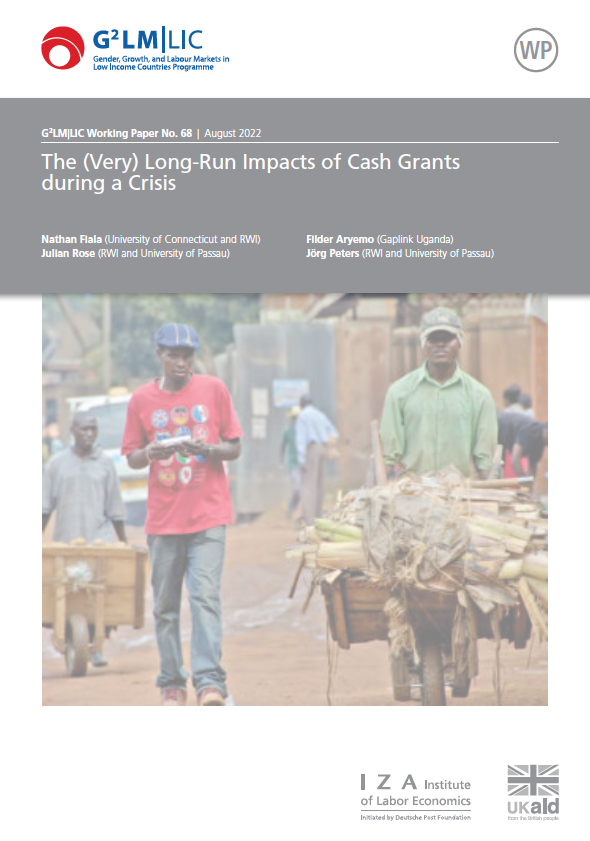
It is repeatedly argued that the potential effects of giving cash grants to poor people are constrained by the fact that this income group is trapped in poverty, generating little permanent income effect. However, the literature points to mixed results, not only within short- and longer-term evaluations, but also between them. Therefore, the timing of a long-term study and the potential heterogeneity, specifically by gender, may play an important role in the effects of cash grants.
Motivated by the above, this working paper’s researchers set themselves to experimentally assess the long-run impacts of a randomized cash grant in Uganda on three pre-specified outcomes (after 4, 9, and 12 years), including a heterogeneity analysis by gender. By randomly assigning beneficiaries of the Ugandan YOP (Young Opportunities Program) to their treatment and control groups, the investigators find that although the positive income effects recognized after 4 years had vanished after 9 years, they were again found to be positive in this study during the Covid-19 pandemic. Also, considerably stronger positive effects on men should be highlighted, even though these income effects do not translate into higher food security. Read the detailed Working Paper here.